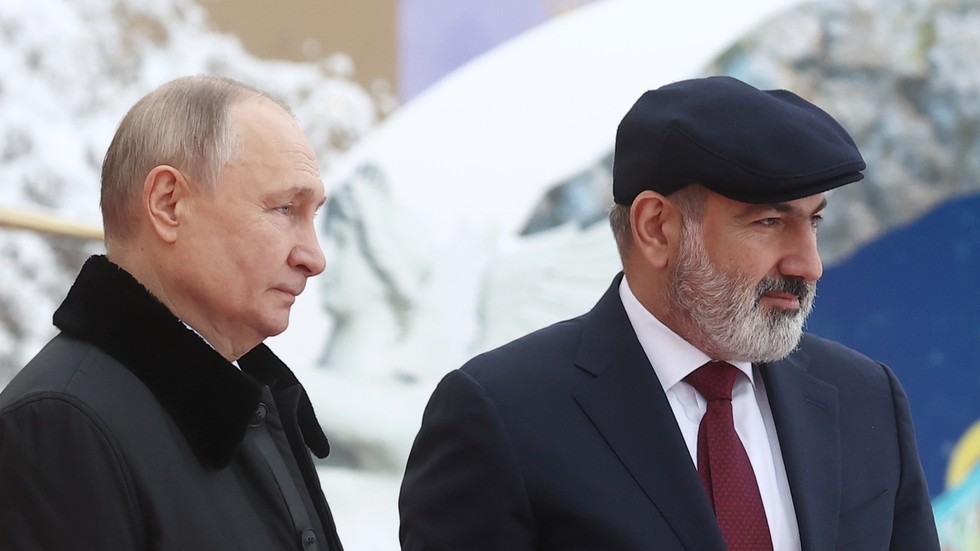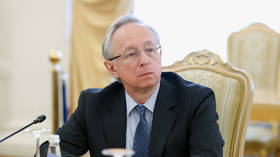
Armenian Prime Minister Nikol Pashinyan has stated that Yerevan does not support Moscow in the Ukraine conflict

Russian President Vladimir Putin and Armenian Prime Minister Nikol Pashinyan © Sergey Karpukhin; RIA Novosti
Russia and Armenia have “diametrically opposed points of view” regarding the Ukraine conflict, Kremlin spokesman Dmitry Peskov said on Monday. Armenian Prime Minister Nikol Pashinyan recently stated that his country does not support Moscow on the issue.
Speaking to representatives of the Armenian community in Germany on Sunday, Pashinyan reiterated that Yerevan “is not an ally of Russia” in regards to the conflict between Moscow and Kiev, and expressed regret that his country “cannot have any influence on the situation.”
Responding to Pashinyan’s statement, Peskov told reporters that “indeed, we have diametrically opposed points of view regarding what is happening in Ukraine and regarding the conflict around Ukraine, this is no secret.”
Nevertheless, Peskov insisted that Russia will maintain its position and will “persistently continue to explain that we are right.”
The exchange comes amid strained relations between Moscow and Yerevan, following the resolution of the decades-long standoff between Armenia and Azerbaijan over the disputed region of Nagorno-Karabakh.

Read more
The predominantly Armenian enclave officially returned to Baku’s control after a large-scale Azerbaijani military operation in September. Armenian authorities have since accused Russia of failing to fulfill its obligations to come to Yerevan’s aid under the Collective Security Treaty Organization (CSTO), of which both nations are members.
Russia has dismissed those allegations, while President Vladimir Putin has noted that Moscow’s military could only have observed a ceasefire in the region. He suggested that Armenia itself gave Azerbaijan free rein after it officially recognized Baku’s sovereignty over the enclave.
Moscow has acknowledged Armenia’s right to choose how to interact with foreign nations, but has also accused Yerevan of “extremely hostile” moves such as holding joint military drills with the US and recognizing the jurisdiction of the International Criminal Court (ICC), which has issued an arrest warrant for top Russian officials, including President Putin.




